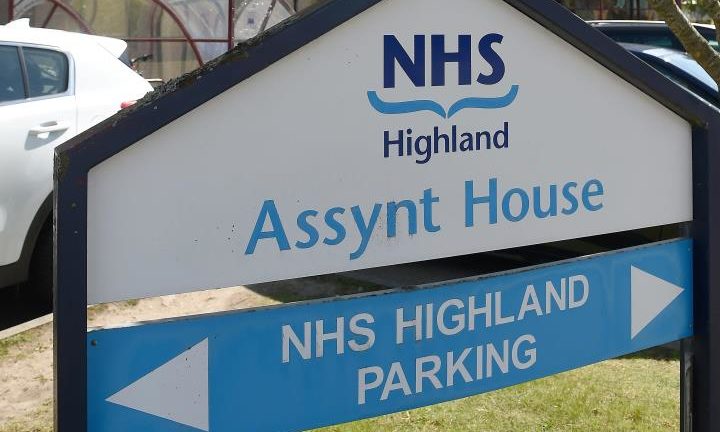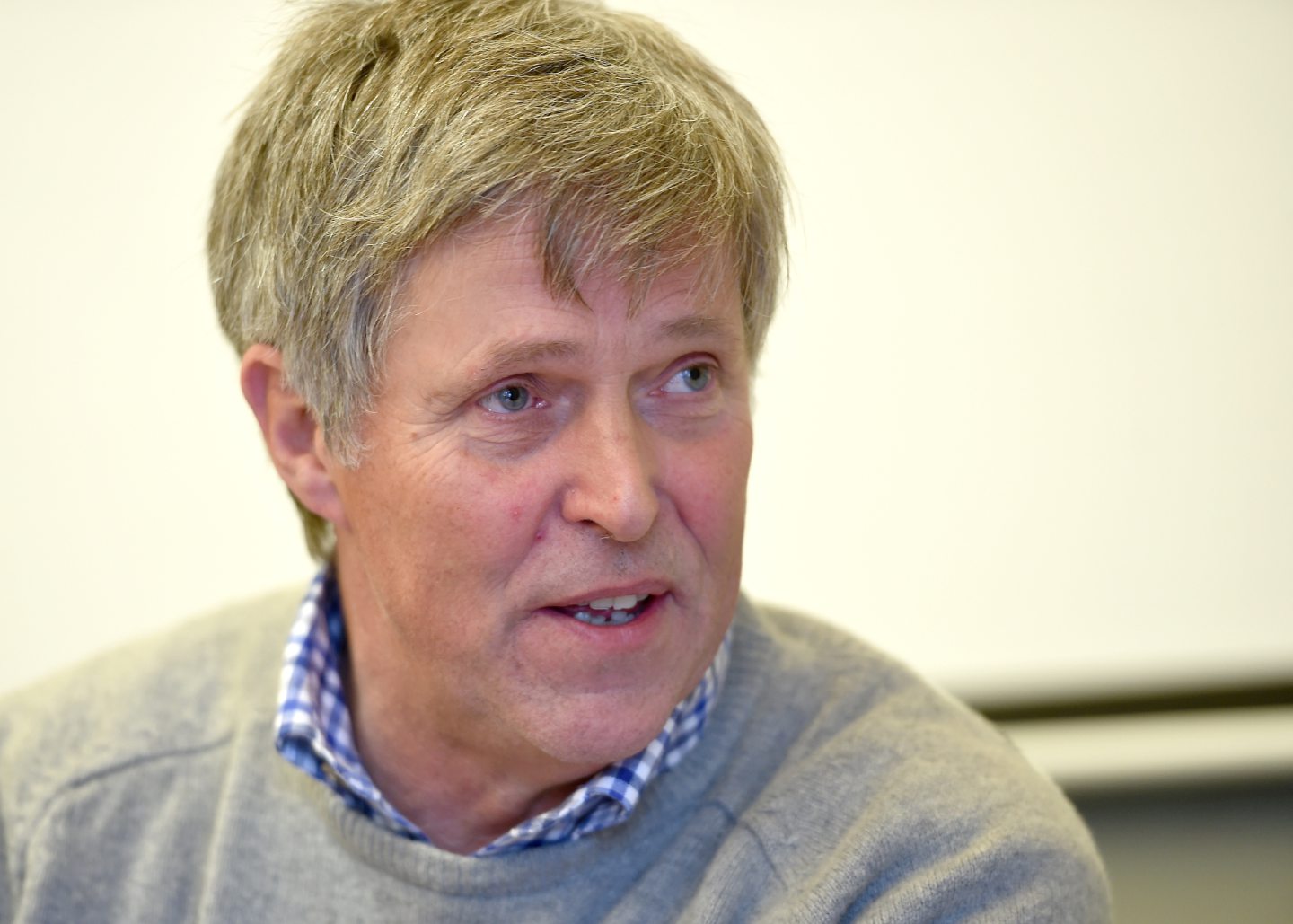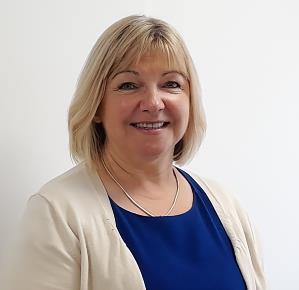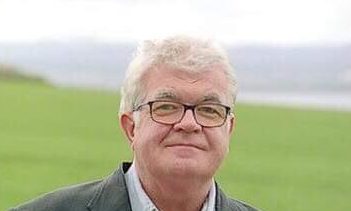Staff who suffered bullying at NHS Highland are being urged to apply by the end of the month for support from a scheme set up to help victims.
Already more than 200 people have applied to the Healing Process, with most asking to have their case considered by an independent review panel. They are also able to access psychology therapies and one-to-one interviews with a trained facilitator.
More than 50 people have had courses of treatment approved through this process.
The scheme was established last May following the independent review in 2019 by John Sturrock QC on bullying and harassment within the health authority. It remains open for applications until February 26.
The Healing Process

The review found that a significant number of NHS Highland employees, and former staff, may have suffered from bullying or harassment over a number of years while working in Highland and Argyll and Bute.
In response, the health board, whistleblowers and trade union representatives set up the Healing Process, funded by the Scottish Government, to allow those affected to access independent advisers, including human resources, legal, communications and mediation specialists.
It was approved by the board in March 2020 and opened for applications in May after being put on hold during the Covid pandemic.
One former worker and a bullying victim said the process has been a success despite, not because of, NHS Highland.
The NHS Highland board has said it is “deeply sorry” for the harm that was caused to all individuals affected.
It said it has “moved forward” since the Sturrock report was published, but the process remains a “work in progress”.
Payment problems
A board meeting last month heard that while a “small number” have been unhappy with the outcome of their process, overall feedback from many different sources suggested that the majority of people have found this process helpful and supportive to their healing.
However, the board was forced to issue an apology for not anticipating problems which have affected payments to victims.
It emerged last year that settlement pay-outs under the Healing Process were made through the payroll and subject to tax and national insurance.
It led to significant reductions in amounts received by former staff, with one ex worker saying an expected £25,000 pay-out was reduced to £13,000, a situation branded “cruel” by another former member of staff.
The health authority said it was advised the payments had to be taxed at source, before later seeking a review by HM Revenue and Customs to clarify whether a dispensation could be made.
On Friday it was confirmed the victims of NHS Highland bullying will not have to pay tax or national insurance on payments received because most will be made due to harm suffered, not loss of earnings.
The Healing Process’s Independent Review Panel (IRP) said that none of the payments it has recommended to date were to compensate for lost earnings while in employment. Refunds will be processed for anyone who has paid tax on payments.
NHS Highland apologised for “confusion and hurt” caused as a result of the tax implications not being highlighted earlier, and for making payments before obtaining clarification from HMRC.
It said it was pleased with the ruling which will enable NHS Highland bullying victims who participate to benefit further from the Healing Process and urged those affected by past bullying or harassment to register for the service.
NHS Highland chief executive Pam Dudek said it had sought in good faith to make bullying payments as quickly as possible but, in retrospect, delaying payment while clarification from HMRC was sought, might have been advisable.
MSPs Edward Mountain and David Stewart, who have supported victims, said the ruling was a victory for common sense and a great relief to victims.
Pam Dudek: My vision to create a compassionate and inclusive health organisation
Since becoming chief executive of NHS Highland in October, I’ve been impressed by the work that has been done in the efforts to address the findings of the Sturrock Report.
While we have introduced a lot of activities to improve our culture, I know there is more to do. As such, my vision is to create an organisation where everyone feels confident to speak up and share their views, a compassionate and inclusive organisation.
I do believe we have moved forward since the report was published in May 2019 on the historic bullying and harassment that had taken place within NHS Highland. However, this remains work in progress.
The board was profoundly sorry about the harm too many people had suffered. And in direct response to the report, working in partnership with the Scottish Government, whistleblowers and other stakeholders, the Healing Process was co-created.
Since this unique service was launched last spring more than 200 people have registered. I have heard how important it has been for those who suffered harm to be able to tell their personal stories – in a confidential and safe space – to the service’s Independent Review Panel (IRP).
This feedback is testament to the great work the whistleblowers, along with all the partners, did in establishing a service that addresses deep-seated issues and helps people heal.
It has not been the case for everybody and we are trying to understand why that might be and will continually review the ongoing learning that is critical to the success of establishing a positive and thriving environment for our staff and patients.
The NHS Highland board – quite rightly – does not have access to personal information given to the IRP. But we are finding new ways to further improve our culture from the reports the IRP is creating.
Brian Devlin: Process is not perfect but it is a success
Is the Healing Process a success? Yes. In my view it is a model of justice for harm caused to people by a cruel managerial culture. It is entirely non-adversarial, based on one fundamental principle – belief in the victims.
It isn’t perfect. But that depends on what you expect. If you’re seeking a compensation scheme for loss of earnings, then you have not read the big, never mind small, print.
Whose success is it? There have been some truly courageous architects to this process. Without doubt this is a success for those clinical leaders who blew the whistle on the toxic bullying culture in NHS Highland. Those victims who worked with the Scottish Government to jointly design the process are quiet heroes. MSPs, Ed Mountain and David Stewart, have been astounding representatives. The politician with most merit in my view is Jeane Freeman. She got us to here.
The process has been a success despite, not because of, NHS Highland. I don’t have the word count to go into the amount of stress that the so called ‘leaders’ have put victims through. It’s been hard to know whether some of their actions have been motivated by incompetence or spite at times. The debacle around putting ex-members of staff on the payroll and then taxing them at 40% is a case in point.
All of that being said I would thoroughly recommend The Healing Process to anyone who fits the criteria. For me and many others I know it does what it says on the tin.
Brian Devlin, former head of NHS Highland public relations department and victim of bullying



